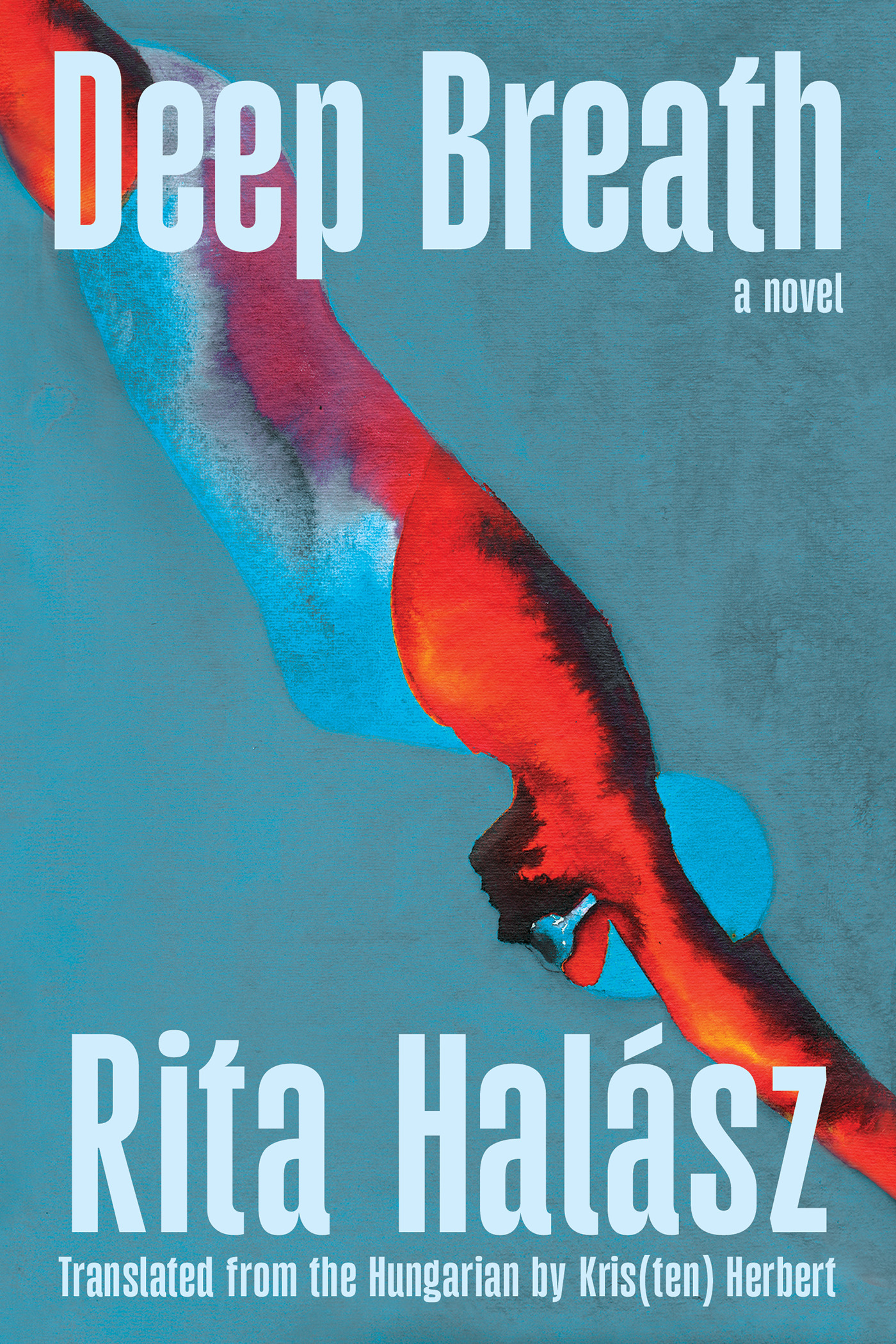
Deep Breath
A Novel
Rita Halász & Kris Herbert & Rita Halász
On Sale: 05/19/2026 | $16.95
9781646223268 | Paperback 5-1/2 x 8-1/4 | 224 pages Buy it Now
On Sale: 05/27/2025 | $26
9781646222681 | Hardcover 5-1/2 x 8-1/4 | 224 pages Buy it Now
Book Description
A visceral and stirring novel exploring free will, memory, faith, and constructions of reality and the self, following a woman faced with the question of whether her marriage is abusive, and the life-altering decision of ending it
When we meet Vera, her body and mind are on a precipice. She’s just left her marital home to live with her father after her husband’s violent outbursts reach a breaking point. She’s experiencing sudden losses of consciousness, spells of insomnia and difficulty eating. Over the course of the year that follows, she reignites a high school romance, looks to her divorced parents for guidance, attempts couples therapy, struggles to mother two young daughters, develops a brief cocaine dependency, and tries to rekindle her artistic practice—all while questioning, in Halász’s immediate, intimate prose, the infinite number of choices that led her to this difficult moment.
Towards the end of the novel, we follow Vera into a surreal funhouse mirror of a courtroom scene, equally comical and horrifying, where she must confront the many conflicting narratives of her marriage and separation and decide which one rings true.
With the emotional precision and formal elegance reminiscent of Natalia Ginzburg and Elena Ferrante, Halász offers a meditation on agency, subjectivity, motherhood, and the artistic vocation with an ultimately optimistic conclusion: life consists of forward movement, in which the biggest challenge—and privilege—is choice.
“Halász’s terse and unsparing syntax mirrors her protagonist’s disorientation, splicing together different conversations and memories in the span of a paragraph, sometimes even a single sentence . . . It’s a testament to both Halász’s and Herbert’s narrative talents that even when Vera’s mind tips over a precipice, the reader is still able to parse her spiraling consciousness . . . Remarkable.” —Jane Hu, The New York Times Book Review
Praise For This Book
"Halász’s terse and unsparing syntax mirrors her protagonist’s disorientation, splicing together different conversations and memories in the span of a paragraph, sometimes even a single sentence . . . It’s a testament to both Halász’s and Herbert’s narrative talents that even when Vera’s mind tips over a precipice, the reader is still able to parse her spiraling consciousness . . . Remarkable." —Jane Hu, The New York Times Book Review"By so sharply tracing the contours of Vera’s relationship—and her eventual liberation from it—Halász turns language into a mirror, demonstrating how words can reflect back things we may not yet know about ourselves." —Regan Mies, Asymptote Journal
"Intelligent . . . [Halász] vividly portrays Vera’s world through a seamless blend of impressionistic narration and dialogue. Readers will find much to admire in this striking portrait of a woman’s search for fulfillment." —Publishers Weekly
"Rita Halász is the Elena Ferrante of Budapest, with a heartbreaking humor entirely her own. I loved this novel.“ —Jessi Jezewska Stevens, author of Ghost Pains







